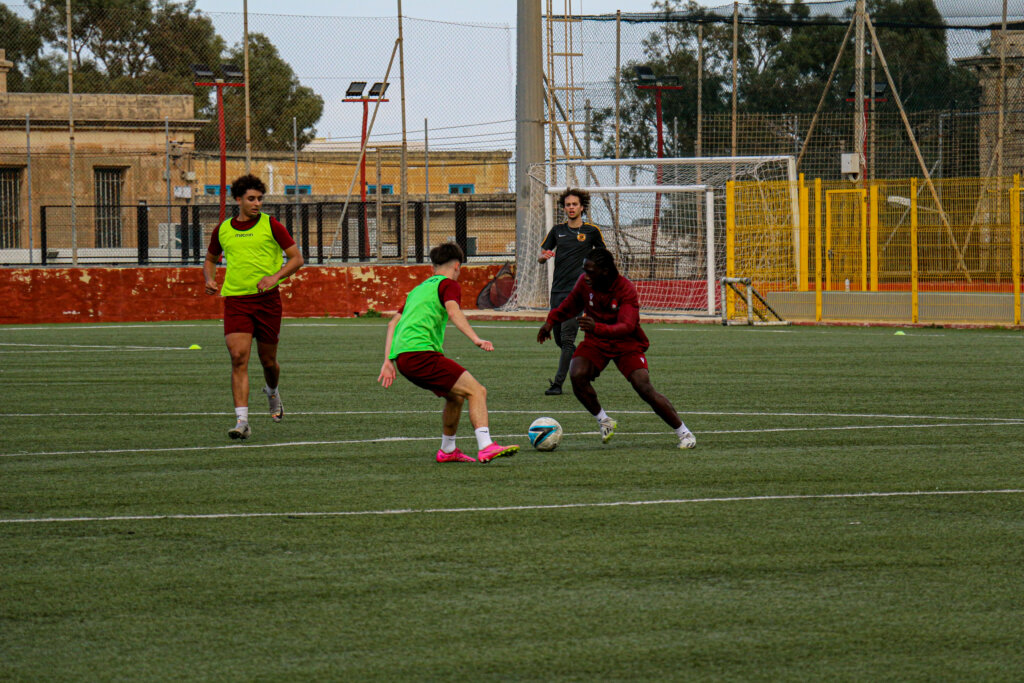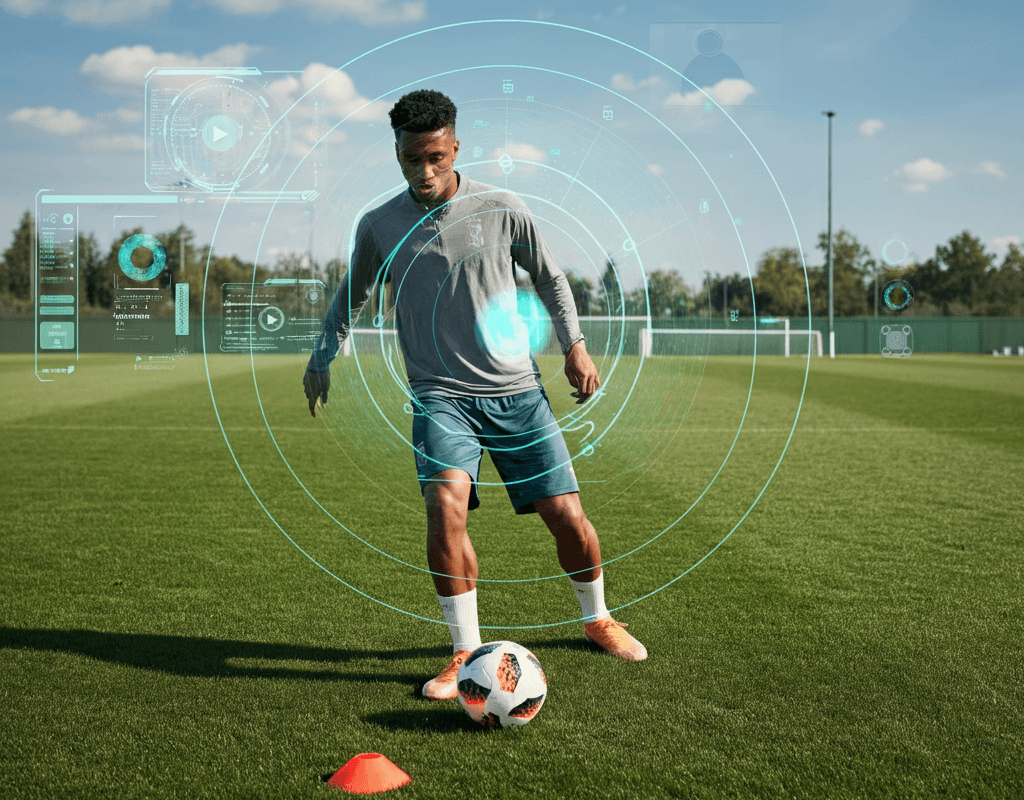When we talk about the essential skills of a football player, we often talk about dribbling, shooting accuracy or speed. But what differentiates a good player from an excellent one is his game vision.
This ability to see beyond the immediate action, anticipate movements on the pitch and make the right decisions quickly is essential if you are to excel and gain an advantage over your opponents.
Looking to refine your vision of the game? In this article, we'll explore some practical strategies and practices to help you observe, analyse and integrate yourself even better into the game.
Summary
Understanding spatial awareness in the field
Our vision of the game is based above all on a solid spatial awareness. It's about knowing not only where you are positioned on the pitch, but also where your team-mates and opponents are. By understanding these dynamics, you're better prepared to move the ball at the right time to the right person.
Tips to improve your spatial awareness:
- Look around you all the time: Raise your head regularly to scan your surroundings rather than focusing too much on the ball.
- Study the patterns of play: Observe how your team-mates move. This will help you anticipate their next moves.
- Play under pressure: Training matches with constraints (e.g. restricted spaces) force you to act while keeping an eye on your surroundings.
Techniques to improve peripheral vision
Peripheral vision is one of the most crucial skills for a football player. It enables you to pick up movement in the border areas of the visual field, even if you're not looking directly in that direction.
How to strengthen this skill:
- Visual exercises: Try exercises such as staring at an object while trying to identify movements or numbers around you.
- Quick reads: Read aloud different words or numbers displayed on your visual periphery.
- Specific football training: Use cones or markers to get used to quickly spotting the options around you when dribbling.
Developing anticipation and decision-making skills
The best players always seem to be one step ahead because they know how to anticipate what's going to happen. They read the game, analyse the options and make informed decisions in a fraction of a second.
Anticipation and decision-making techniques:
- Watch professional matches: Analyse the positioning and movements of well-known professional players to learn from their decisions.
- Play quick games: Adopt short formats such as 5 vs 5 to train your brain to react quickly.
- Identify subtle signals: Watch your opponents' postures and positions - this often reveals their intentions.
Using video analysis to improve game vision
Analysing match videos is an extremely powerful tool for improving your vision of the game. Not only does it allow you to review your actions on the pitch, but it also helps you to understand how the team as a whole interacts.
How to use video analysis:
- Replay your matches: Note what you could have done better in terms of positioning or decision-making.
- Study the opposing teams: Analyse their patterns of play to anticipate their future strategy.
- Gather feedback: Ask your coaches or team-mates to contribute to the analysis to get other perspectives.
Practical exercises to work on game vision
1. Rondo (circle passing)
- Objective: Improve spatial awareness and decision-making speed.
- What to do: Position yourself in the centre of a circle of team-mates. Try to recover the ball while anticipating the others' passes.
2. Playing in confined spaces
- Objective: Learn to play under pressure with little space to think.
- What to do: Organise a match with small zones to reduce the decision time.
3. Training with visual cues
- Objective: Developing peripheral vision.
- What to do: During a pass or dribble, ask a team-mate to pick up a colour or shape on the other side of the pitch, and try to identify it while remaining focused on the action.

Mental strategies for staying focused
Having a good vision of the game depends not only on your physical skills, but also on your mental ability to stay on the ball. focus and present. Here are some strategies for maintaining your concentration:
- Deep breathing: Remain calm and relaxed, even in moments of high tension.
- Set yourself targets: During a match, focus on a specific objective, like scanning the pitch more.
- Visualisation: Before the match, imagine different situations and how you would react to them.
Conclusion
The game vision is a skill that takes time, practice and experience to develop. But with the right techniques and regular work, every player can improve their tactical sense and connection with the game.
Don't stop there. Keep observing, analysing and experimenting. And above all, have fun unleashing your full potential on the pitch!

